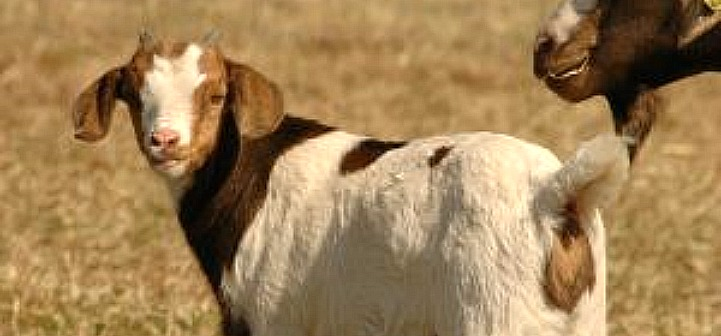Ringworm is a fungal disease, caused by one of four species. It is transmitted by direct or indirect contact with contaminated equipment or environment. The fungi invade the skin and hair fibers. Breaks in the hair and hair loss occur due to the breakdown of the hair shaft. Young goats or goats housed in dark damp barns as well as those that are undernourished or have a debilitating disease are most at risk. Close shearing and washing practices used at shows leave show animals also at risk.
Symptoms: Crusty circular raised lesions on the skin’s surface. Animals may be very itchy.
Diagnosis: Positive culture of skin and hair samples, or a wet mount examination by a veterinarian.
Treatment: Treatment helps limit the spread of the disease to other animals and humans. Topical iodine compounds (2 percent to 5 percent), chlorhexidine (2 percent), lime sulfur (2 percent to 5 percent), and topical antifungal medications are useful for local treatment of lesions. Some severe cases require administration of medications. This requires the help of a veterinarian.
People treating animals should always wear gloves and protective clothing to prevent from getting this disease from the animals. This is considered a zoonotic disease.
Prevention: Proper cleaning and disinfection of clippers, blankets and other equipment with antiseptic solutions, along with good sanitation practices of animal handlers will help control the spread of this disease.
